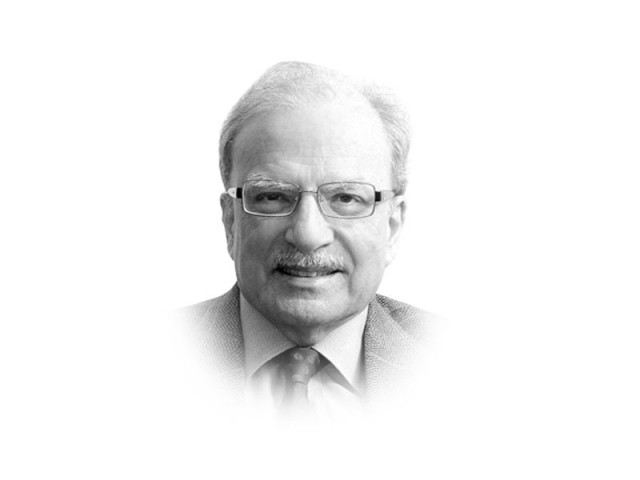As America pulls out, China pulls in
More than 130 companies are applying AI in ways that could increase efficiency of Chinese healthcare system

The writer is a former caretaker finance minister and served as vice-president at the World Bank
However, in one area, Pakistan has done better than its South Asian neighbours. This is in exporting skilled workers to the parts of the world where for demographic reasons these skills could not be supplied in the needed numbers from domestic resources. The export of doctors to the United States is one example of this kind of people’s movement. Pakistan now has a large number of medical professionals working in America. It is clear that for Pakistan to move forward more decisively in terms of its economic and social development, it must have a supportive external environment. ‘Globalisation’ is important for the country. However, the political rise of Donald Trump in the United States and the gaining of ascendancy of rightist forces in Europe are turning the clock back on globalisation. Will this trend persist in the future?
The ‘Davos elite’ met for the annual get-together in mid-January. This was one of the more important meetings of the group since its founding in 1990. Those who attend the meeting in the Alpine resort in Switzerland are generally referred to as the globalist. They have come to believe that for the world economy to develop all nations should work together, preferably within a well-defined and rule-bound framework. This framework has developed over the years, pushed along by the United States. Those who contributed to the development of the global system began their work in 1944. By then the war in Europe had ended with the defeat of Germany and Italy. The victors were led by the United States. The war in Asia was still going on, taking a heavy human toll. Japan proved to be a more stubborn opponent than Germany and Italy. It took the enormous damage rout by atom bombs, dropped on each of the cities of Hiroshima and Nagasaki that finally brought Tokyo to the negotiating table.
While the Soviet Union had played a critical role in defeating Germany and Italy — it suffered more human losses than any other country in the highly destructive European war — it did not join the effort to design a new global order. Moscow stayed away from the Bretton Woods conference, convened by the victors to ensure that the mistakes made after the First World War would not get to be repeated. One of the greatest mistakes made in the post-First World War era was the strong belief that the defeated had to be punished even after they had laid down their arms. Germany had to pay a high price for the harm it had done to other people. A heavy burden was placed on Germany which contributed to the rise of Nazism and eventually to the Second World War.
The lesson learnt by the Second World War victors was that the vanquished had to be helped to rebuild their economies and have them rejoin the victors. A large programme of economic assistance was launched. Two new institutions were added to the Marshall Plan, one, the International Monetary Fund for bringing stability to the world of finance, and the other the International Bank for Reconstruction and Development. The latter once the ‘reconstruction’ part of the mission had been carried out became the World Bank Group (WBG). The IMF and the WBG became a part of the backbone of the new global order. To these two was added the World Trade Organisation in 1995. It is this system of institutions that Donald Trump once he became president was committed to if not destroy but at least reduce their role in the management of the global economy. But as America opts out, China will opt in.
China could help Pakistan develop its relatively backward health sector. The country is now busy building what some analysts have called the virtual hospital of future. At present its hospitals are overburdened; 1.5 doctors for every 1,000 people — barely half the figure for the United States. It plans to deploy artificial intelligence (AI) to provide simple and affordable medical services. This effort is led by the country’s two largest technology companies, Alibaba and Tencent. Last year, Alibaba’s health unit introduced an AI software that can help interpret CT scans and an AI medical lab to help doctors make diagnoses. More or less at the same time, Tencent unveiled Miying, a medical imaging programme that helps doctors detect early signs of cancer.
In all, more than 130 companies are applying AI in ways that could increase the efficiency of the Chinese healthcare system. Money is flowing in into the enterprises that are bringing AI into healthcare. Venture capitalists such as Sequoia and Matrix Partners have invested about $2.7 billion in such businesses. Analysts at Bernstein have estimated that spending in China’s health and tech industry will reach $150 billion by 2020. Pakistan would do well to climb on to the Chinese AI-healthcare bandwagon.
Published in The Express Tribune, February 5th, 2018.
Like Opinion & Editorial on Facebook, follow @ETOpEd on Twitter to receive all updates on all our daily pieces.

















COMMENTS
Comments are moderated and generally will be posted if they are on-topic and not abusive.
For more information, please see our Comments FAQ